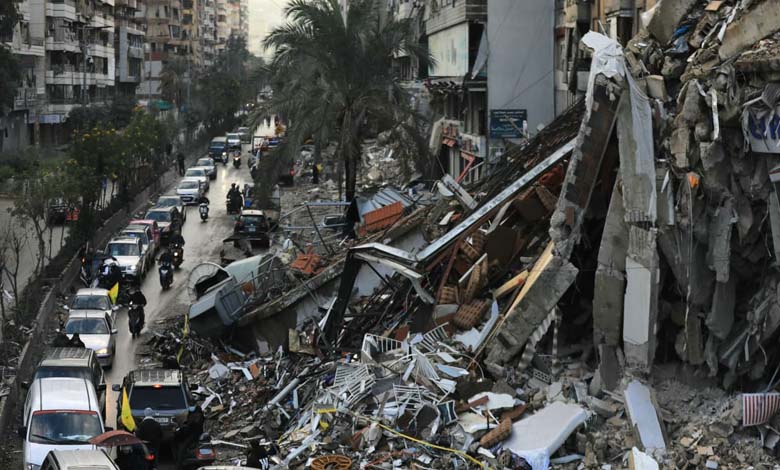Secret Clauses in Ceasefire Agreement Restrict Iran’s Actions in Lebanon
Israeli Channel 12 reports that one clause commits Washington to preventing Tehran from bolstering its presence in Lebanon or hindering the ceasefire agreement directly or via its proxies.

Israeli media revealed what they describe as secret clauses in the U.S.-brokered ceasefire agreement between Israel and Lebanon’s Hezbollah. These clauses primarily concern Iran’s role in the region and in Lebanon and remain undisclosed.
-
Can Hezbollah stand up to Israel? Iranian President expresses doubts
-
Washington Post reveals how Lebanese pay the price for Iranian threats and ongoing Hezbollah-Israel clashes
Iran, the main supporter of Hezbollah, expressed support for the ceasefire agreement, with officials claiming Hezbollah achieved victory despite its losses.
Channel 12 disclosed that “the most sensitive clause involves U.S. approval to cooperate with Israel on the Iranian file.”
Israeli Prime Minister Benjamin Netanyahu stated that the ceasefire will enable a focus on Iranian threats and isolate Hamas in Gaza.
-
Saudi-Iranian rapprochement confuses the calculations and plans of the Houthi militia and Hezbollah party
-
How will the Iranian nuclear deal increase the arsenal and power of Lebanese Hezbollah?
The channel revealed that “the U.S. guarantee letter included a clause titled ‘The Iranian Commitment,’ which states that Washington pledges to prevent Iran from destabilizing the region, strengthening its foothold in Lebanon, or obstructing the agreement directly or through proxies.”
In return, the documents reveal a key clause requiring Israel to notify Washington of any actions aimed at protecting its security from Iranian and Hezbollah threats.
The U.S. also demands that Israeli actions and responses comply with international law and refrain from targeting infrastructure in Lebanon. The document specifies that “Washington has a supervisory role, making it responsible for guiding Lebanese forces now deployed in the south.”
-
To provide alternatives to Iranian support, Hezbollah expands its drug and weapons smuggling activities
-
US imposed sanctions on Iranian ambassador to Iraq, and two senior Hezbollah officials
Israeli authorities see the agreement as “a major achievement” since it obligates Washington to ensure that the Lebanese side adheres to its terms, with the U.S. acting as the primary guarantor.
Iranian Foreign Minister Abbas Araghtchi stated on Wednesday that Tehran reserves the right to respond to last month’s Israeli airstrikes while considering regional developments.
During a visit to Lisbon, he said Iran welcomes the ceasefire agreement in Lebanon and hopes it will lead to a lasting truce. The agreement between Israel and Hezbollah, backed by Iran, took effect Tuesday under U.S. and French mediation.
-
Following Approval from Iran and Israel: Ceasefire Negotiations in Lebanon Enter Final Stages
-
From Basta to Bazourieh: Hezbollah Strongholds “Ignite” Lebanon
Asked whether the ceasefire might ease tensions between Israel and Iran, Araghtchi responded, “It depends on the behavior of the Israeli state.”
He added, “Of course, we reserve the right to respond to recent Israeli aggression, but we take into account all developments in the region.”
Israel targeted positions in Iran on October 26 in response to a rocket attack by Tehran against Israel on October 1.
Ali Larijani, a senior advisor to Iranian Supreme Leader Ali Khamenei, told Tasnim news agency on Sunday that Iran is preparing to “respond” to Israel.
-
Israel Threatens Hezbollah Leaders: Defeating the Party with the Weapon of “Chaos”
-
“Endless Wars” for Power: What Netanyahu Wants from Gaza and Lebanon
Although Netanyahu claimed on Tuesday that Hezbollah had been “set back by decades,” Araghtchi said the armed group had not weakened, even after losing many leaders to Israeli attacks since January and enduring Israel’s ground offensive in early October.
He added that Hezbollah, supported by Tehran, had managed to regroup and retaliate strongly, noting that “this is the main reason Israel accepted the ceasefire… Every time they lose their leaders, they grow in numbers and strength.”
His remarks echo those of Hassan Fadlallah, a senior Hezbollah official, who stated that the group would emerge from the war stronger and more numerous.
-
After his death… Who is Salim Ayyash, Hezbollah member convicted of killing Rafic Hariri?
-
Israel plans to expand its ground operations in southern Lebanon
The Iranian minister tweeted on X: “Hezbollah has once again shattered the myth of Israel’s invincibility. It’s time for the Israeli state to accept its defeat in Gaza as well.”
Iranian state media reported that the Foreign Ministry rejected a G7 foreign ministers’ statement calling on Tehran to halt all support to Russia in the Ukraine war, dismissing it as “baseless.”
Since Russia’s full-scale invasion of Ukraine in 2022, Moscow and Tehran have strengthened their military and economic cooperation.
-
Gaza and Lebanon face the specter of death and famine… UN warnings and a deep humanitarian crisis
-
Does Hezbollah’s Defeat Mark the End of the Iranian Era?












